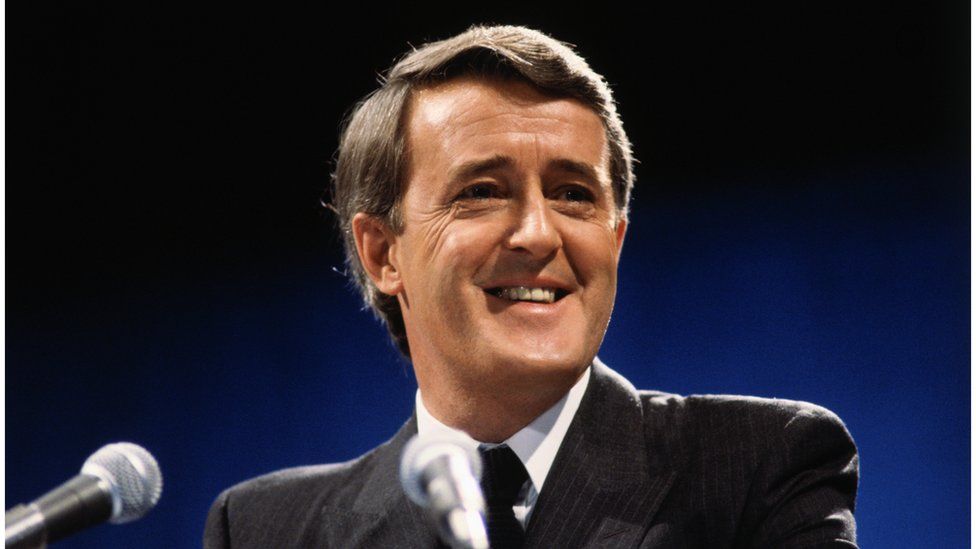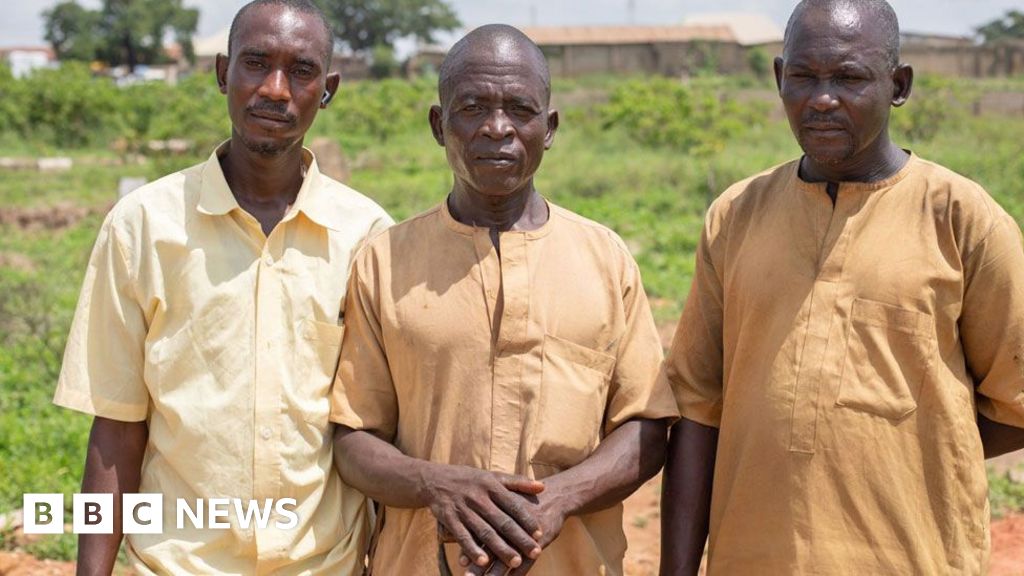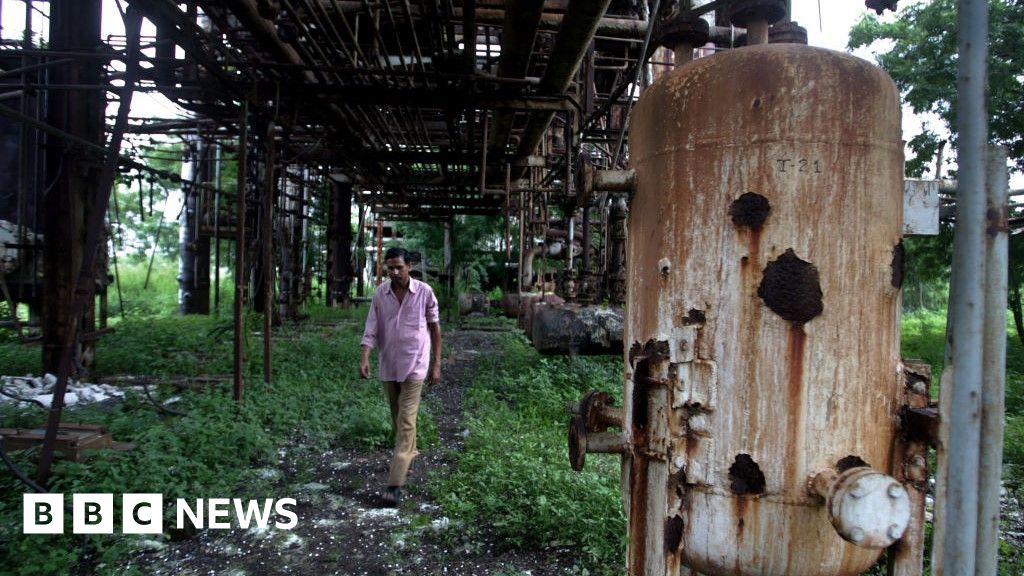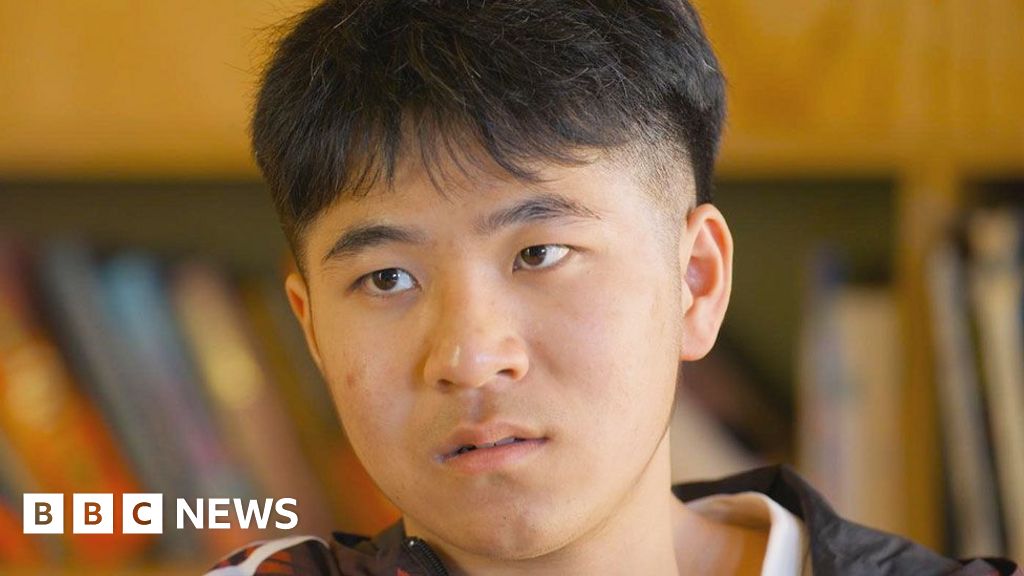ARTICLE AD BOX
 Image source, Getty Images
Image source, Getty Images
Former Canadian Prime Minister Brian Mulroney, who led his country from 1984 to 1993, has died at the age of 84.
The conservative leader, the 18th prime minister in Canada's history, passed away "peacefully, surrounded by family," his daughter posted online.
Mulroney led Canada through the closing days of the Cold War and forged a free trade agreement with the US.
Prime Minister Justin Trudeau said he was "devastated" to learn of his death.
"He never stopped working for Canadians, and he always sought to make this country an even better place to call home," Mr Trudeau posted on X, formerly known as Twitter.
"I'll never forget the insights he shared with me over the years — he was generous, tireless, and incredibly passionate."
Mr Trudeau also asked the public to "also acknowledge - and celebrate - Mr Mulroney's role in building the modern, dynamic, and prosperous country we all know today".
Born in a blue collar paper mill town in north-eastern Quebec, Mulroney began his career as a lawyer and business executive before taking over as the leader of the Progressive Conservative Party and becoming prime minister.
In 1974, he was tapped to participate in a commission to investigate the James Bay hydroelectric project, helping to author a bombshell report that described organised criminal infiltration of labour unions involved in the project.
In 1983, Mulroney won a parliamentary seat in Nova Scotia, and became the leader of the conservatives. He took office as prime minister in 1984, taking over from the Liberal Party's Pierre Trudeau. He handily won re-election in 1988.
The Canadian Broadcasting Corporation on Thursday described Mulroney as "a gifted public speaker", one of the country's most controversial prime ministers and "unafraid to tackle the most challenging issues of his era".
Image source, Getty Images
His followers often compared him to the US president at the time, Ronald Reagan. The two leaders bonded over their shared Irish ancestry, at one point singing a duet together of the song "Irish Eyes are Smiling" at a meeting dubbed the "Shamrock Summit".
His stewardship of the economy was the most controversial part of his tenure in office.
Among the measures he passed, the most significant was the North American Free Trade Agreement (Nafta) between Mexico and the United States. The agreement helped boost the country's exports.
But he also privatised several Crown holdings, including the airline Air Canada and created Canada's Goods and Services Tax, which overhauled the country's tax system. The move was intensely unpopular among Canadians.
In 2015, he defended the many reforms that he pushed through as premier in an interview with BBC News.
Nafta, he said, "gave Canada a new lease on economic life", and his government's tax measures have "had an extremely beneficial impact on the economy".
Internationally, he pushed for Reagan to sign a treaty to curb acid rain and an agreement to modernise Canada's air defence systems. He also took a vocal stance against apartheid in South Africa,
"Whether one agrees with our solutions or not, none will accuse us of having chosen to evade our responsibilities by side-stepping the most controversial issues of our time," Mulroney said in his 1993 resignation address.
"I've done the very best for my country and my party."
After leaving office, it was revealed that he had received large sums of cash from an arms dealer and lobbyist, although he insisted not during his time in office.
The money given to him by Karlheinz Schreiber, which was revealed amid a large kickback scandal, he described as an "error of judgement".
"My second biggest mistake in life, for which I have no one to blame but myself, is having accepted payments in cash from Karlheinz Schreiber," he said in 2007. "My biggest mistake in life - by far - was ever agreeing to be introduced to Karlheinz Schreiber in the first place."
Mulroney and his wife had four children. His daughter Caroline, is now a politician in Ontario, while his son Ben is a well known television presenter in Canada.
Former Canadian prime minister Brian Mulroney: "The tax changes we made were fundamental"

 10 months ago
125
10 months ago
125








 English (US) ·
English (US) ·